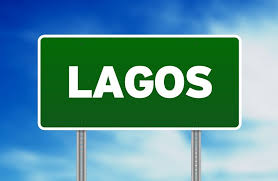
President Muhammadu Buhari probably already figured this out, which is apparent (amongst other reasoning) in his decision to appoint the previous Governor of Lagos state to head the nation’s Power Sector and other sectors that are closely concerned with (renewable) infrastructure.
Lagos is beautiful – I was born, bred and educated in Lagos up to University level, but I’m not saying this out of bias. There are in fact many other cities in Nigeria that are beautiful too. Lagos is also the most choked-up city in Africa with a population density of about 18K people per square KM (or in English, 18 people every Kilometre offset by a metre). Its probably not as dense as other cities in the world but it possesses the kind of potential world’s biggest cities have. Africa is where the global investment focus is directed at right now and Lagos is literally at the centre of the spotlight and as you can imagine, the hotspot is always at the centre.
Renewable energy is a trending topic globally and it involves the sourcing and use of alternative energy resources that are environmentally friendly. As we all know, our main source of energy is from the sun. The sun manifests its irradiation directly on earth through sunlight. We all know that and it’s pretty much elementary knowledge, but even if you understand the basic benefits of sunlight (vision, photosynthesis and environmental conditioning), you might not be aware of the capacity of the photovoltaic feature. Solar energy is free, sustainable, and renewable. Ordinarily, this ubiquitous source of energy can be harvested highest on our planet at the center of the spotlight. Coincidentally, Lagos is located near the equator on a favorable spot for year-round irradiation.
So if global investments focus were likened to a flashlight, this would mean that Lagos is currently receiving attraction from two very important resources necessary for technology development in renewable energy.
Furthermore, there are contemporary socio-economic debates on the need for renewable energy now and in the future. For now, the emerging technologies show more benefits and potential if deployed in densely populated places without a competitive and reliable grid infrastructure and generally inadequate supply of electricity. There is a heavy need in such places.
The lifestyles in Lagos are diverse with all kinds of various Nigerian cultures mixing around every part of the city. This mix makes it difficult to predict grid system behavior and hence difficulty in management as a result of high variability. Lagos Traffic (commonly known as #GidiTraffic) is one of the most complex systems in the world and it’s mostly exhibited in the heavy hold-ups road users face on a daily basis and hypothetically has a significant impact in energy consumption. The appropriate way to deal with such complexity is to decentralize or in simpler words, break it down into smaller parts or modules rather than attempt to attain control from just one central point. This concept is already tested (and almost trusted) in the fields of modern computer science as apparent in trending technologies like cloud computing, Internet of Things and Mobile technologies. In modern energy systems, this is equivalent to off-grid systems and mostly deployed as solar+battery installations. The general idea behind going ‘off-grid’ is not new to Lagos and has been sort of working for many Lagosians, only that the existing kind that makes one “better than his neighbor”, involves the use of petroleum products that are not as economically and environmentally friendly as PV systems (PV as in Photovoltaics).
In general economic trends, economies tend to cycle through booms and dooms. Nigeria is currently in the phase of getting past a long-lasting period of ‘suffering in silence’, into one that will raise the nation to abundance and prosperity. Lagos is the main source of hope for all Nigerians and this is where the Nation’s renewable energy starts… (and where this story ends).


